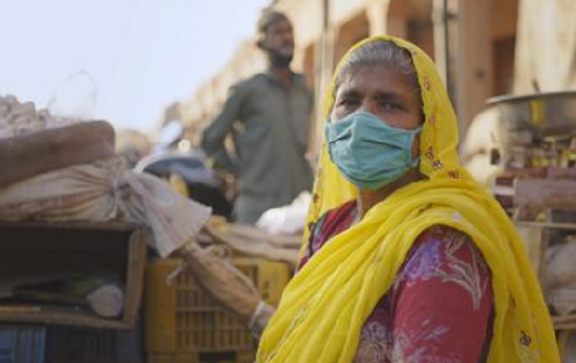- Developed economies’ monetary and fiscal policy moves risk pushing the world towards global recession and prolonged stagnation, UNCTAD warns
- With global growth forecast to slow to 2.2% in 2023, UNCTAD outlines actions to avert crisis and support developing countries exposed to debt, health and climate crises
- 46 developing countries are severely exposed to multiple economic shocks and another 48 seriously exposed, heightening the threat of a global debt crisis, the UN agency says
Monetary and fiscal policy moves in advanced economies risk pushing the world towards global recession and prolonged stagnation, inflicting worse damage than the financial crisis in 2008 and the COVID-19 shock in 2020, UNCTAD warns in a new report.
Rapid interest rate increases and fiscal tightening in advanced economies combined with the cascading crises resulting from the COVID pandemic and the Ukraine war have already turned a global slowdown into a downturn with the desired soft landing looking unlikely, the UN Conference of Trade and Development said.
In its Trade and Development Report 2022 released on October 3, UNCTAD said in a decade of ultra-low interest rates, central banks consistently fell short of inflation targets and failed to generate healthier economic growth.
“Any belief that [the central banks] will be able to bring down prices by relying on higher interest rates without generating a recession is an imprudent gamble,” the report said.
“At a time of falling real wages, fiscal tightening, financial turbulence and insufficient multilateral support and coordination, excessive monetary tightening could usher in a period of stagnation and economic instability for many developing countries and some developed ones.”
The United States is set to cut this year an estimated US$360 billion of future income for developing countries (excluding China) and signal even more trouble ahead, the report warns.
“There’s still time to step back from the edge of recession,” UNCTAD Secretary-General Rebeca Grynspan said. “We have the tools to calm inflation and support all vulnerable groups. This is a matter of policy choices and political will. But the current course of action is hurting the most vulnerable, especially in developing countries, and risks tipping the world into a global recession.”
UNCTAD expects the world economy to grow 2.5% in 2022. Prospects are worsening, with growth in 2023 expected to slow to 2.2%, leaving real GDP still below its pre-pandemic levels by the end of next year and a cumulative shortfall of more than $17 trillion – close to 20% of the world’s income.
The synchronised slowdown is hitting all regions but is ringing alarm bells for developing countries, where average growth is expected to fall below 3%, a pace insufficient for sustainable development, further squeezing public and private finances and damaging employment prospects.
Middle-income countries in Latin America, and low-income countries in Africa, will register some of the sharpest slowdowns this year, the report says. Net capital flows to developing countries have turned negative as financial conditions have deteriorated since 4Q2021, such that developing countries are now financing developed ones.
The report says currencies of some 90 developing countries have weakened against the dollar this year; foreign exchange reserves are falling and bond spreads are widening, with a growing number posting yields 10 percentage points higher than US treasuries.
UNCTAD says 46 developing countries are now severely exposed to multiple economic shocks and another 48 seriously exposed, heightening the threat of a global debt crisis.
The report concludes the situation in developing countries is much more tenuous than recognized by the Group of 20 countries and other international financial fora, with talk of a global financial safety net increasingly at odds with their reality.
Developing countries have already spent some $379 billion of reserves to defend their currencies this year, almost double the amount of new Special Drawing Rights (SDRs) recently allocated to them by the International Monetary Fund, and have also suffered significant impact from capital flight.
UNCTAD calls for increasing Official Development Assistance, a larger, more permanent and fairer use of Special Drawing Rights, hedging mechanisms to deal with exchange-rate volatility, and greater leveraging of multilateral capital to support developing countries with comprehensive social programs.
But, additionally, progress on a multilateral legal framework for handling debt restructuring, including all official and private creditors, should be made a priority, UNCTAD says.
The report recommends a program of reforms in developing economies to boost productive investment and constrain capital moving to exploit tax loopholes, along with new arrangements to support closer regional trade, investment and financial ties.
Compared with the global financial crisis, the COVID-19 recovery has been more inflationary for advanced economies than for developing countries, where inflation rates are structurally higher.
Under these circumstances, the report says, harking back to the 1970s or to later decades marked by austerity policies in response to today’s challenges is a dangerous gamble.
“The real problem facing policymakers is not an inflation crisis caused by too much money chasing too few goods, but a distributional crisis with too many firms paying too high dividends, too many people struggling from paycheck to paycheck, and too many governments surviving from bond payment to bond payment,” said Richard Kozul-Wright, head of the team in charge of the report.
With inflation already beginning to ease in advanced economies, UNCTAD calls for a course correction in favor of policy measures targeting price spikes in energy, food, and other vital areas directly.
Nevertheless, the report underlines the need for increased support for vulnerable groups, including lower-wage workers and households in financial distress, warning of the damage that monetary tightening is causing to economic, social and climate goals, hitting the poorest the hardest.
UNCTAD urges a more pragmatic strategy that deploys strategic price controls, windfall taxes, anti-trust measures and tighter regulations on commodity speculation.
The report lays out a strategy of increased cooperation among developing countries which, along with reforms to the multilateral architecture, could help shift the global economy in the right direction.









